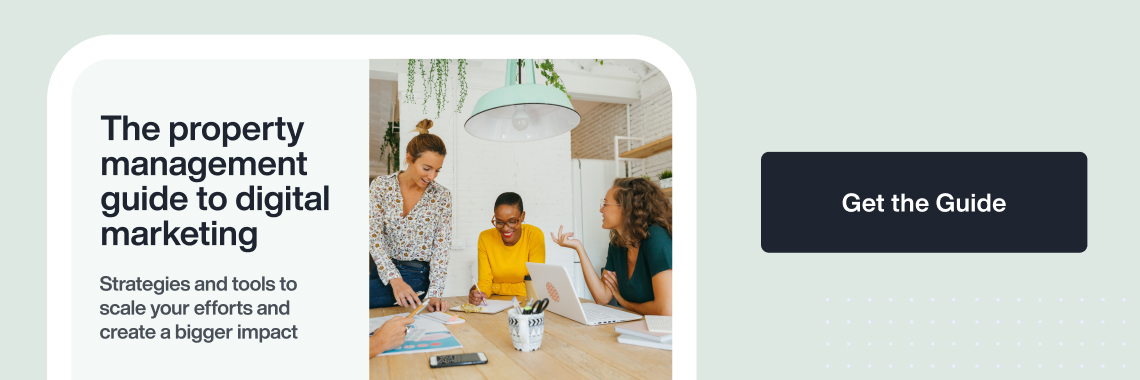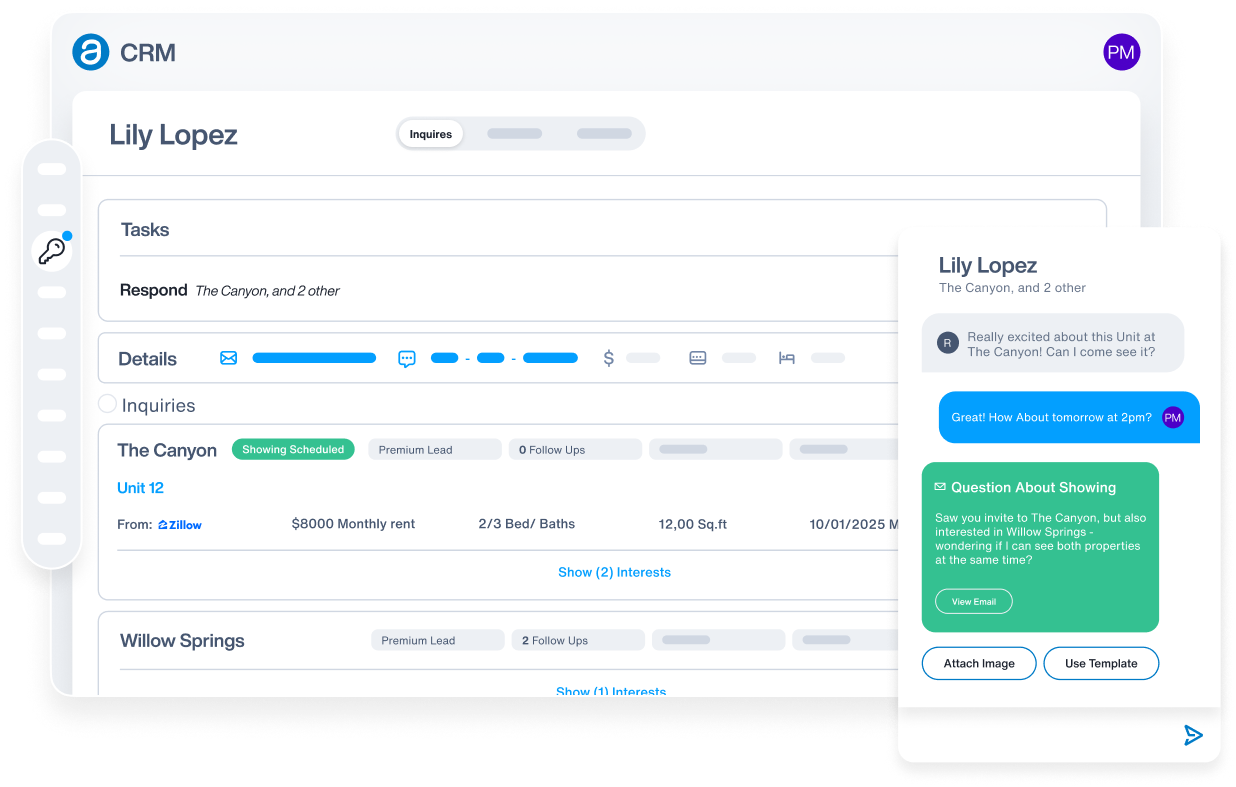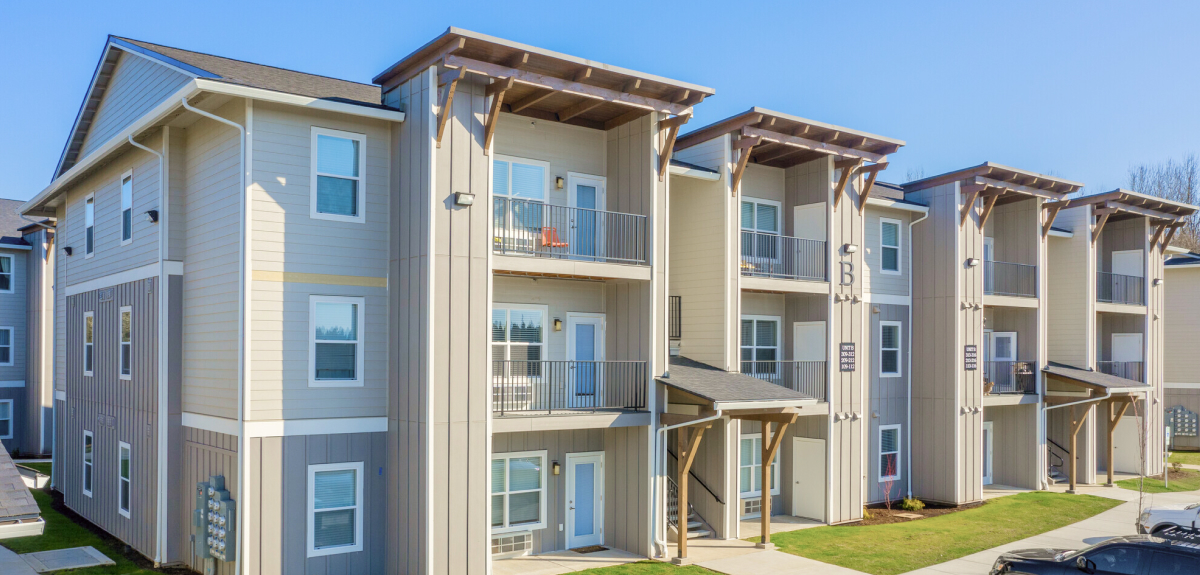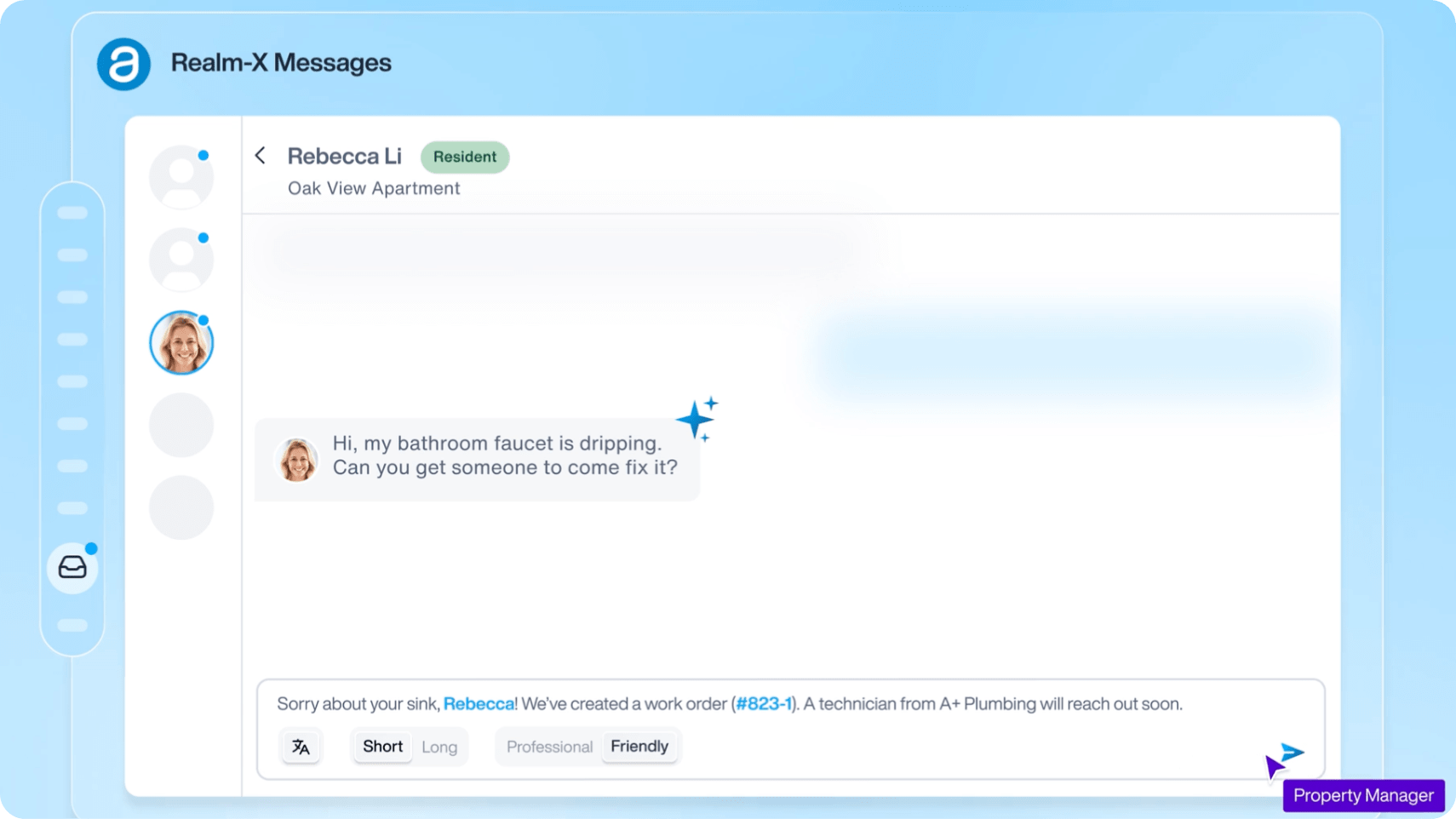Published on September 1st, 2022
By Marc Frenkiel
If you’ve been manually managing your inbound leads and guest cards, it’s time to ditch the pen and paper.
CRM tools help you save time, reduce errors, and provide a more streamlined experience for your leasing staff as well as prospective renters.
Hear more about how CRMs can benefit your property management business from Laura Rhoads, Staff Product Manager at AppFolio, in the first episode of our brand new season of The Top Floor. You can tune in to the full podcast here, or keep reading to learn more.
What is a CRM, and do you need one?
In Laura’s words, a CRM is a tool that helps you collect all relevant prospect information and foster relationships.
Essentially, CRM tools are robust communication tools that act like the glue between your company and your residents. Modern CRMs can also help you manage the renewals process as well, so nothing falls off the radar.
What about manual customer relationship management?
Pen and paper or Excel are still the go-to methods for many leasing teams. But as things become more complex – whether it’s renter expectations or the size of your portfolio – those manual methods often fall short.
As Laura explains, if you’re not using some form of automation like a CRM, then customer management becomes expensive from a time management perspective. You can also lose potential leads or end up with a double data entry problem:
“I’ve talked to some customers that used to do all of their customer relationship management with Excel, or pen and paper. And that’s possible. However, it’s super cumbersome. And the amount of data entry that people have to do if they’re not using some automated tool, like a CRM is extreme. It’s really expensive from a time management standpoint.”
Modern CRM tools give you insights into prospects and customers that you wouldn’t have otherwise. You can have all your leads come into the system automatically, and you can also benefit from reporting data that lets you make better decisions over where to allocate resources.
Aside from the data, you also benefit on the communication side. CRM tools can be instrumental in closing a deal because they help to build a relationship with a customer that’s simple, streamlined, and leaves them feeling like they’re being taken care of.
Residents don’t want to feel like just another number. They want (and expect) a more personalized approach, and a CRM helps to make that a reality for busy leasing teams who need to keep track of hundreds of different residents.
Ultimately, if you’re dealing with dozens of different residents, properties, and potential leads, combining all of that information into one centralized CRM is the way to go.
Current trends in the world of rentals
As a property manager or owner, you have to keep on top of the trends like any other business if you want healthy growth.
Laura highlights that one of the top trends right now is the rise in virtual tours. This became a necessary solution during the pandemic, but it’s now becoming expected and preferred by many prospects. Coordinating calendars and being physically present for tours can be difficult for some, so a virtual tour is a great way to help people decide on a property.
Unsurprisingly, younger generations are leading this trend. Younger, more tech-savvy residents have vastly different expectations from leasing agents than previous generations.
When they do their research, younger residents expect everything they need to be available on a website, including extensive photographs, pre-recorded tours, and even the ability to book viewings online rather than calling up. They may prefer virtual tours to in-person tours and texting to phone calls. They also expect fast responses to messages, much like they would on social media.
“Anything that they can do on their phone, when they’re out and about is on the rise. And I don’t think that’s going anywhere. The key to managing all of these expectations for numerous residents and leads is a solid CRM system that pulls all of this information together.”
Laura believes that the rental industry will adopt a more hybrid approach where companies utilize automation and AI alongside leasing agents who can offer that personal touch and relationship.
How to scale your operations
It’s a common question in any business: How do you scale without hiring lots of new people?
The key is to utilize technology to increase efficiency.
Laura believes that the marketing side of a business, in particular, needs to be more efficient. Some companies will manually send out bulk emails every once in a while. Instead, they could create an automated drip campaign that would be more effective and efficient.
Alongside automated email campaigns and marketing pushes, Laura recommends updating your website with 3D tours, floor plans, well-produced YouTube videos for each property, and detailed information about each unit.
Extensive details like these are exactly what the younger generation of residents want and expect from modern leasing agents. Not only does it make the units look more attractive to residents, but it also ensures that only genuinely interested parties contact the leasing team.
You’ll find that some prospects naturally weed themselves out, and you can instead focus on those who are truly interested and are more likely to convert. This approach saves everyone time – both on the resident and the leasing agent side.
“I think getting more eyes on your brand and the lifestyle you’re trying to offer, that’s a big deal right now. In terms of the whole ecosystem of all the things you could possibly buy, what are you spending most of your money on? You’re spending most of your money on rent. So why aren’t we seeing more of that with property management businesses? And how can we provide tools along those lines for that marketing.”
While all of these things come with upfront investment costs, they’ll pay off in the long run.
Automate as much as possible
If you’re looking to do one thing to vastly improve your property management business, Laura’s tip is to start automating ASAP.
Leveraging tools that use AI technology can save time in gathering lead data. When combined with features like virtual or 3D tours, you can create an all-round great experience for prospects and current renters. These tools can also help you manage renewals by sending reminders which provides a more personal feel to the resident experience.
Use data wisely
One of the primary benefits of using a CRM is better, more accurate data collection.
When armed with data, you can plan your marketing and management efforts more strategically. For example, if you can see one particular property is falling behind , you can better investigate issues and pinpoint solutions.
The take-home message from Laura is simple: If you don’t have the tools at your disposal, you could be falling behind your competition. Utilizing a good CRM and automating as much as you can will result in saved time, resources, better customer experiences and, therefore retention, and data collection that can help you plan more effectively.
“Make sure that you’re tailoring the CRM and workflows to meet your organization’s needs.. You’re servicing different clients in different areas, with different rules. So make sure that you understand what customization options you have in your tool. Make sure they’re going to work for you and then train your people really well on that process. That’s going to allow you to get the most out of your CRM and really help your business be as efficient and effective as possible.”
To hear the full conversation with Laura, check out the episode here.
Download our free guide below for more ways to maximize your marketing efforts.










Comments by Marc Frenkiel